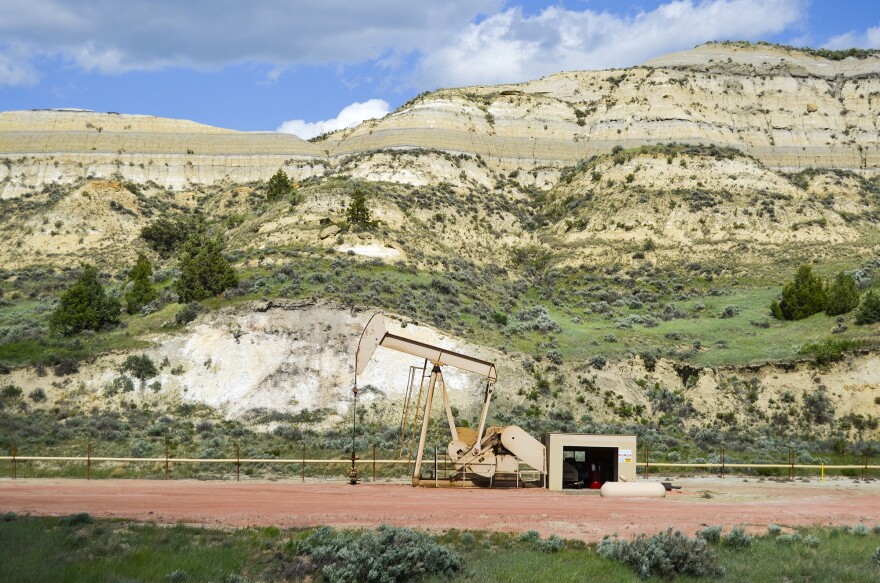When wildfires break out in oil and gas country, they pose certain risks -- like last week when a fire started up in the badlands of western North Dakota.
The blaze, dubbed the "Magpie Fire," raged through 5,400 acres, much of it in the Dakota Prairie Grasslands.
Medora District Ranger Shannon Boehm with the U.S. Forest Service said when the agency got word a fire had sparked, staff called oil companies operating in the region.
“We got a hold of them in time,” he said. “They were able to safely go out there and shut them down and get out of the area.”
Nine wells were closed down. The fire only reached one of them, and it burned aroundthe site’s perimeter.
If wells aren’t shut down, it’s possible gases could ignite.
Even though wells are stopped to prevent this from happening, Boehm said firefighters still take extra precautions.
“They’re aware of which direction the wind is blowing from the wind sock on each one of the pads,” he said. “They understood to stay away from the downwind portion of the pad.”
Once a fire is contained, the forest service will notify companies they can turn the wells back on.
He said another concern is the flaring of excess natural gas, especially when high winds blow about the flames. Two years ago, a wildfire started when a flare came too close to the ground. As a result, companies are more cognizant of mitigation measures, like making sure wellpads are free of grass and weeds.
Boehm said the biggest concern with this month’s fire has nothing to do with the fact that it burned through the oil patch.
“This is probably the roughest country in North Dakota,” he said. “The extreme terrain makes it the biggest challenge for the firefighters.”
McKenzie District Ranger Nancy Veres said it will take a while to restore the area. Part of the restoration work includes the popular Maah Daah Hey Trail.
“Working on the trail, we want to get that done as soon as we can,” she said. “We know the public enjoys utilizing that trail and we know we have some events coming up.”
She said other work like reseeding will likely happen this fall and could extend into next spring.
Despite all this, Boehm said there is a silver lining.
“There are some benefits to this fire,” he said. “It reduces the juniper that had been encroaching out on the grasslands that interferes with ranchers’ ability to graze because it takes up moisture and it crowds out the grasses. And it refreshes the seedbed for grasses.”
The cause of the fire is still under investigation.




